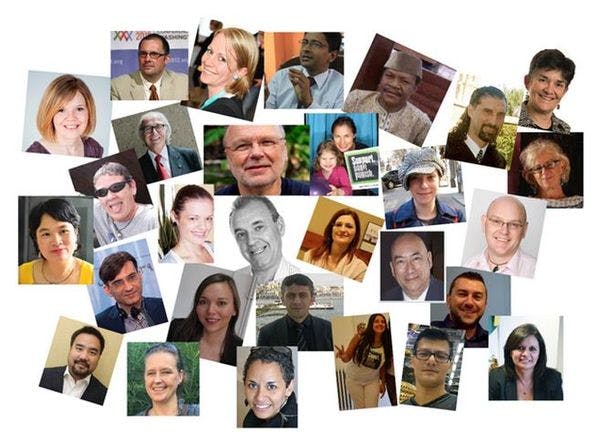Le vrai débat des Nations Unies sur la guerre contre la drogue et la guerre contre les jeunes
Steve Rolles, Analyste Principal en matière de politique des drogues à Transform, souligne le rôle des jeunes dans les préparatifs de la Session Extraordinaire de l'Assemblée Générale de l'ONU sur les drogues en 2016. Pour en savoir plus, en anglais, veuillez lire les informations ci-dessous.
Abonnez-vous à l'Alerte mensuelle de l'IDPC pour recevoir des informations relatives à la politique des drogues.
Taking place next year, from April 19th to the 21st, is the UN General Assembly Special Session (UNGASS) on Drugs in New York. The General Assembly is the highest policy making and representative organ of the United Nations, and its infrequent Special Sessions focus on key topic areas at the request of member states. The UNGASS on drugs has the potential to be a groundbreaking, open debate about the international drug control system, not least because it was requested by three Latin American states – Mexico, Guatemala, and Colombia – who expressed a clear desire to review the failings of the war on drugs and consider alternative approaches, specifically including legalisation and regulation.
It's important to remember that the war on drugs is held in place by member states’ support for the global prohibitionist drug control infrastructure, overseen by the three UN drug treaties and UN drug agencies. For change to happen internationally, it has to be led by member states in these forums. But there is much work to be done to ensure that the UNGASS fulfils that potential – and moves the high-level debate forward.
Civil Society have a critical role in informing the debate and making sure it remains open and meaningful, and Transform have been working with colleagues in New York and around the world to support these UNGASS preparatory processes for the past two years. Part of the build up to next year’s UNGASS was a meeting of the General Assembly earlier this month, with the somewhat long-winded title, the 'High-level Thematic Debate in support of the process towards the 2016 Special Session of the General Assembly on the World Drug Problem'. In the run-up to the meeting, Transform and our partner organisation in Mexico Unido Contra la Delincuencia, co-hosted a dialogue in New York with the governments of Colombia and Mexico, which was attended by high-level representatives of 18 UN missions. The aim was to discuss the road to next year’s UNGASS; the core issues, as well more simply ensuring that the “wide-ranging and open debate that considers all options” requested by the UN Secretary-General Ban Ki Moon becomes a reality in the face of attempts to stifle progressive discussions by the more conservative-leaning defenders of the drug-war status quo.
The outcome of the High Level Thematic Debate is detailed in this UN press release, which makes for intermittently interesting reading. All the statements and a webcast are available here – the contributions from Jamaica (in English), Mexico, Colombia, Argentina, Ecuador, Dominican Republic, Uruguay, and Guatemala are most interesting from a reform perspective (available in English here).
Alongside this month’s General Assembly meeting were a range of side events including a hearing organised by the Civil Society Task Force for NGO voices to raise issues of concern and feed into the ongoing UN dialogues. Details of the various contributions at the hearing can be read here, but we want to focus on one contribution that seems particularly pertinent to both Transform’s work and the ‘official’ (UNODC designated) slogan for the UNGASS: “A better tomorrow for the world’s youth”.
The contribution comes from Nazlee Maghsoudi, representing Canadian Students for Sensible Drug Policy and the International Centre for Science in Drug Policy, who starts by arguing how, far from protecting youth, the UN-sanctioned war on drugs in practice, even if not by intent, has done the precise opposite. It then also explores some of the changes that need to happen to turn this around – focusing on the provision of health and harm reduction services, and the legal regulation of drugs – and how these are necessary moves if members states are serious about fulfilling the UN goals of child protection and enhancing “the health and welfare of mankind”. Watch the video or read the transcript of Nazlee’s talk.
Click here to read the full article.
Keep up-to-date with drug policy developments by subscribing to the IDPC Monthly Alert.
Régions
Profils associés
- Transform
- Steve Rolles
